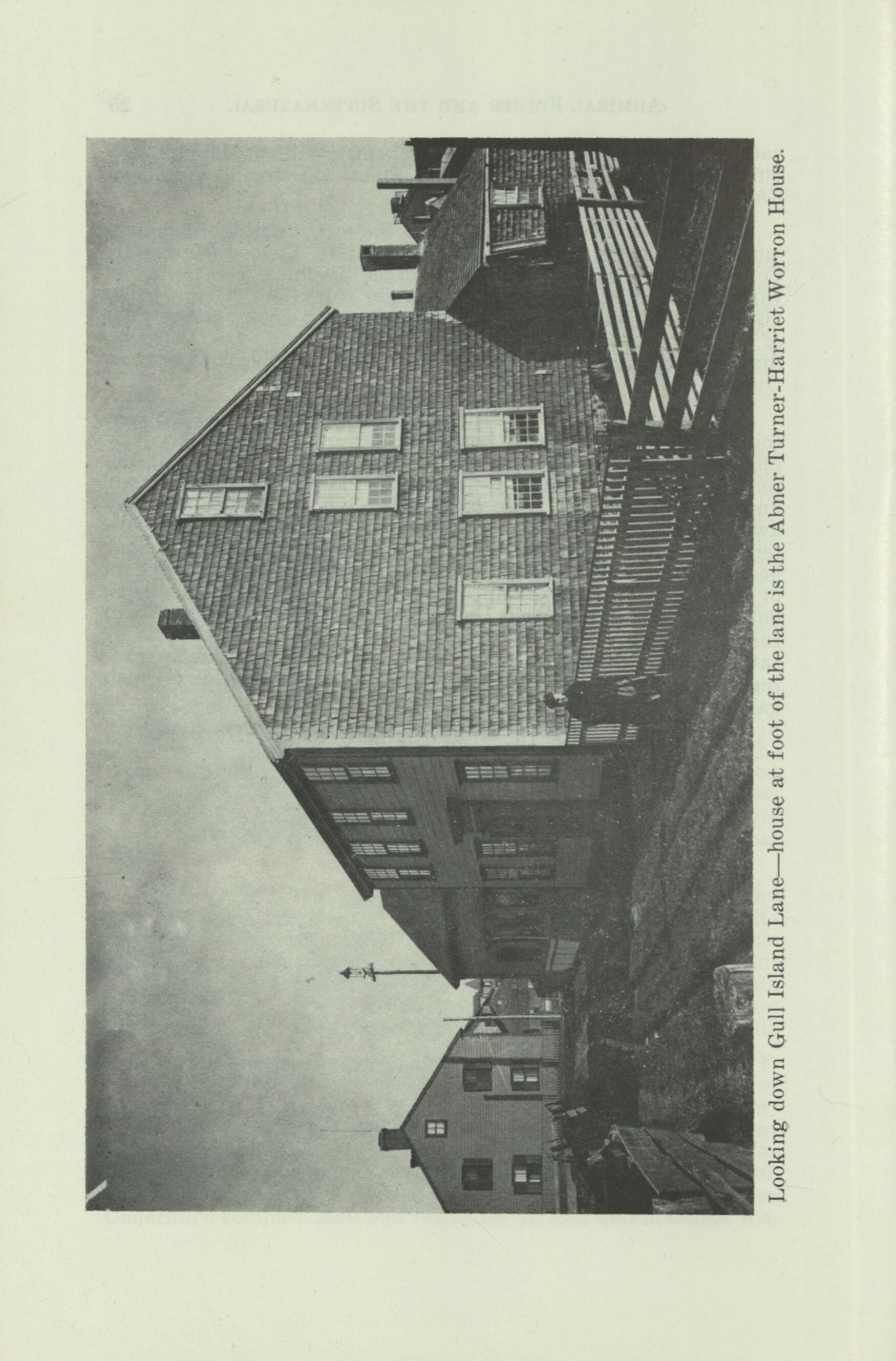
3 minute read
Supernatural
Admiral William Folgers Interest in the World of the Supernatural
ADD TO LITTLE KNOWN facts about Nantucket that, for public libraries in towns of Nantucket's size, the Atheneum houses perhaps the best collection in the United States of books on theosophy, spiritualism and psychical research. Add the further and still more astonishing- fact, that the Atheneum and Nantucket owe this collection mainly to that notable benefactor of the Nantucket Historical Association, the rugged, outspoken, uncompromising Admiral William M. Folger.
From inspection of the Admiral's portrait (hanging in the Peter Foulger Museum) none would dream that he had been an eager student of the occult. Few dreamed this who knew him in life, whether during or after his service in the United States Navy. In the Navy he is remembered as a rigid disciplinarian of uncommon common sense. By most of the associates of his retirement, particularly those in his winter home, the Algonquin Club of Boston, Admiral Folger is recalled for his political conservatism, his zeal for the Navy, and his interest in business and financial developments.
But if, in the reading room of his club, the Admiral was wont to discourse fluently and forcefully on current themes of worldly appeal, in the seclusion of his club bedroom and of the library in his Cornish summer home, the other-worldly rather than the worldly claimed his thoughts. He was not of the dull brotherhood intent only on the material and transitory. Wise enough to sense the illogicality of limiting human life to its earthly span, Admiral Folger was aflame with curiosity to learn what lay beyond that span.
Hence, many years before his death, he began to collect and read and ponder all manner of books relating to the soul and its persistence after the crumbling of the body. The range of his reading was wide indeed, from books of little or no scientific value to the most scholarly of works. Today the Atheneum has them all, and they form a goodly part of the twenty-six hundred volumes that came to Nantucket under the terms of Admiral Folger's will.
That magnum opus of really scientific psychical research, F. W. H. Myers' wondrous Human Personality and Its Survival of Bodily Death, is among them. So is that learned work by my friend Henry Holt, On the Cosmic, Relations, a work which my other friend, the philosopher Josiah Royce, praised to me as The most judicious book on the subject since Myers' Human Personality. Along with these one finds such glaring contrasts as Evelyn. Underbill's compact Man and the Supernatural and Madame Bla-
ADMIRAL FOLGER AND THE SUPERNATURAL 25
vatsky's bulky The Secret Doctrine, Thomas William Hanna's convincing Brain and Personality and Elliott O'Donnell's credulous Ghosts Helpful and Harmful.
Sir Oliver Lodge, Sir William Barrett, Camille Flammarion, Walter F. Prince, Professor Hyslop, Dr. Elwood Worcester, Conan Doyle; these, and many another psychical researcher of varying ability, find place in the Folger collection. It runs back, also, to pre-psychical research days with such books as the Earl of Dunraven's Experiences in Spiritualism with D. D. Home, Stainton Moses' Spirit Teachings and A. W. Trethewy's The Controls of Stainton Moses (M. A. Oxon.)
Whereabouts in the Atheneum are these unusual books to be found? Alas, in an obscure corner, a corner so obscure as to emphasize the slight demand there is today for books bearing on the soul and its possibilities. I wonder if the old Admiral himself knows this? I wonder if he is haunting the Atheneum hopefully awaiting the discovery of his collection by some Nantucket youth temperamentally qualified so to profit from this part of the Folger bequest as to follow in the steps of the great psychical researchers of other days and add to our knowledge of ourselves as they have done? When, as, and if that youth does make an appearance, I can fancy the Admiral, if he is still around, giving the chuckle of satisfaction characteristic of him when he scored a point in reading room debate or bettered some furry marauder of his Cornish garden. — H. Addington Bruce (This article appeared originally in The Harpoon,
June, 1937.)












